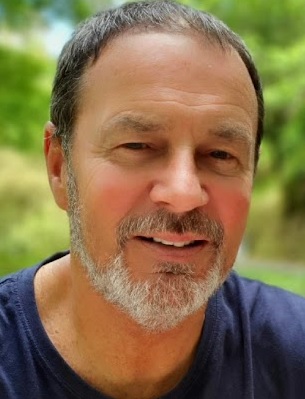
Photo from Pixabay.com
As a kid at Waitohu School in the 1960s, I recall my teacher, a Miss Hoskins, as a very sporty type who liked to travel.
One day in class she revealed a desire to go to the Himalayas. Keen to impress, I proudly offered the fact that my Dad had once been to the Himalayas. My little tale might even have extended to the notion that he had roamed on Mount Everest.
What was I thinking? I had no idea my Dad had been anywhere near the Himalayas, albeit I knew he’d been to exotic places as a Kiwi sailor in the Royal Navy of the Second World War.
Home I went, armed with the knowledge that Miss Hoskins was keen as all hell to know more about this and had said that she’d drop by to quiz my father on his Nepal escapades.
“So Dad, you went the Himalayas, right?”
Unfortunately his one-word reply confirmed nothing of the sort, and I was left with an empty boast and no idea about how to rectify my monstrous lie.
There was, of course, a simple solution – admit the mistake to my teacher and put the matter to rest. But no, in my spongey eight-year-old mind, I had no escape from my extravagant claim and I simply kept quiet, waiting in terror for the arrival of Miss Hoskins at my house, in search of my Dad’s story.
Duly Miss Hoskins did arrive, unannounced, to see my father. I spotted her foot appear under a hedge, so I shot inside and hid under a bed, fearing the worst consequences of my dishonesty.
Was there a punchline to this story? Well, no. They had the conversation, but nothing else happened and the matter was never raised again by my Dad or the teacher.
Except that my amplified untruth is imprinted on my mind to this day.
It comes to mind, especially as we are increasingly challenged by what is true and what is simply made up, especially in social media and in politics.
Children naturally have fertile imaginations and spinning stories is part of growing up. But as kids, we are all taught (at least most of us) to avoid falsehood and to tell the truth.
When we deliberately deceive others and make things up so it’s hard to separate fact from fiction, we end up with a big problem. Personal trust is weaker and, in communities, social cohesion begins to fray.
But the truth is never pure. It’s often a bit ugly and perplexing. It’s the currency of academics and scientists, requiring nuanced understandings and critical thinking. And facts will always be relative, just because there is rarely only “a fact”. There are interpretations and a simple truth can evolve as we might re-evaluate over time.
In life, politics and in the media, I once quaintly thought that facts could be open to a bit of distortion, in order to win an argument or gain some kind of advantage. Let’s face it, most people routinely give out the occasional small lie, and if caught out, admit the mistake, quickly back-track, apologise and move on.
But what happens when politicians, including a former United States president, constantly deal in untruths and never back-track or apologise? They have so distorted the difference between a lie and a truth that the lie has become the currency for their advantage, while the truth is just what someone else says.
In fact, when Trump is accused of anything, he’s suddenly the victim and others are the ones spreading fake news.
For Trump, a lie can be made up in an instant and it doesn’t matter, to his supporters, whether it stands up to critical examination. His MAGA fans, all caught in a bubble of slogans, conspiracies and simple explanations, have an easy attraction as every utterance deals with their troublesome realities of life – Mexicans, Muslims, gays, black people, women, etc, etc.
So, consider this. If my Dad had been a big liar, like the 8-year-old me, and had told Miss Hoskins a porky about climbing Mount Everest, she no doubt would have been none the wiser and ecstatic with the news. My Dad’s ego would have been stroked, and I would have learned a Trump-like lesson that lying makes me bullet-proof and has personal benefits.
I might have lost some friends, but I would have likely made some new ones. I might even have decided to lie my way to becoming president of something.
 You can contact Fraser here.
You can contact Fraser here.
Fraser Carson is the founding partner of Wellington-based Flightdec.com. Flightdec’s kaupapa is to challenge the status quo of the internet to give access to more reliable and valuable citizen generated content, and to improve connectivity and collaboration.
Flightdec websites include: KnowThis.nz, Issues.co.nz and Inhub.org.nz.
OTHER POSTS
LATEST POSTS
- Who was our first knight?
- Carl Lutz – farmer who loved the land, and Fordsons
- Arthur saw nature ‘with eyes of admiration’
- Ōtaki abuzz with film festival - Ōtaki Today
- Hall helps to connect and build community
- Fear breeding fear, fear and more fear
- Plenty of help organisations in times of need
- Poor official communications fuel misinformation
- Cultural infrastructure could be our saviour
- Four-storey blocks coming as developments fast-tracked
- The world’s therapist offers little hope for global ills
- Modern conservatism the quiet killer
- Di’s QSM for services to community and environment
- However bad it might get, keep smiling
- AI is coming, ready or not
- Rewi’s story one of adversity in old Ōtaki
- Arise King Brown of the Kingdom of Auckland
- Rebuilding should draw on mātauranga
- Urban designer poses critical question - What’s the plan for Ōtaki?
- Brown hits the fan as water levels rise
